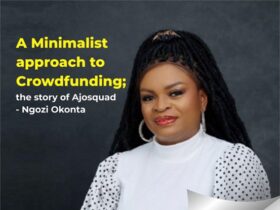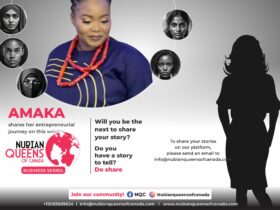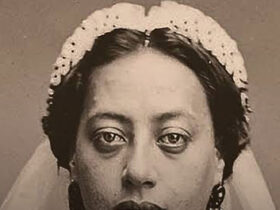Naomie Pilula redefined beauty on her own terms. A victim of oline bullying, she grew a movement of supporters from those who had also been shamed, mocked, or told they weren’t “good enough.” Naomie had struck a nerve- her defiance was powerful because she didn’t break but stood her ground and made a statement. Read her full story here.
In a world where social media can make or break self-esteem, Naomie Pilula learned firsthand how cruel the Internet could be. It began innocently enough: she took a selfie, posted it online, and waited for the usual flood of likes and casual comments. But what she received was something far different.
The comment section turned against her. Strangers, hiding behind screens, flooded her photo with insults. They said she wasn’t beautiful, that she didn’t belong in the spotlight, that she wasn’t “enough.” For many, those words would have been crushing. For Naomie, they stung deeply—after all, who wouldn’t be hurt by such cruelty?
But instead of retreating, Naomie did something remarkable. She decided that if the world wanted to tear her down, she would rise even taller. If they said she wasn’t beautiful, she would redefine beauty on her own terms. And she would do it boldly.
In June 2025, Pilula, then 37, posted a video and a selfie on her Instagram account (@stylish_zed_lawyer) while sharing a regular update on her beauty routine. Her posts were met with a wave of online harassment, with strangers mocking her looks and suggesting she was an AI-generated image or needed cosmetic surgery. The criticism often focused on her nose, a feature she inherited from her father. Some of her followers defended her, but the negative comments continued to pour in.
The cyberbullying initially took Pilula aback, but she was surprised to find that it did not deeply affect her, as it might have in the past.
Pilula’s response and rise to fame. Rather than letting the negativity shame her, Pilula turned the situation into an opportunity to promote self-love and confidence. She took a stand for her authentic self, declaring, “If God made me, then what can people say?”.She specifically addressed the comments about her nose, asking, “Why would I want to remove a feature that identifies me with my father? It doesn’t make sense”. She explained that she had long ago made peace with her features, and no one could take away her self-love because they hadn’t given it to her. Throughout this encounter, Pilula cited her Christian faith as her source of strength and comfort, drawing on scriptures like Psalm 139, which emphasizes being “fearfully and wonderfully made”.
Her story spread as an example of how one person can flip negativity into empowerment. Instead of letting the bullies win, Naomie chose to stand in her truth. Each selfie became more than a picture; it became a statement of resilience. She showed the world that beauty is not a narrow box defined by society, but a broad spectrum shaped by confidence, authenticity, and self-love.
Naomie’s bravery speaks to a larger truth about the age of social media: the comment section can be cruel, but it can also be reclaimed. For every person who tears someone down, countless others are looking for inspiration to rise. By refusing to hide, she reminded people everywhere that self-worth is not measured in likes, comments, or anyone else’s opinion.
As a result, Pilula’s story of resilience quickly spread across social media, and she was featured in international publications, including People magazine. Her Instagram following skyrocketed from approximately 1,000 to over 72,000 in just a few months, with many people praising her courage and authenticity. In a remarkable turn of events, her journey culminated in an invitation to walk in Paris Fashion Week in late September 2025, solidifying her status as an inspirational figure. What was intended to break her became a platform for healing and inspiration for thousands of women, particularly in Africa and beyond.
So, Naomie began posting more pictures—not fewer. More selfies, more smiles, more unapologetic images of herself exactly as she was. Each post was a declaration: I am here. I am enough. I am beautiful.
What began as an act of resistance quickly evolved into something much bigger. People who saw her courage began to rally around her. Messages of support poured in from those who had also been shamed, mocked, or told they weren’t “good enough.” Naomie had struck a nerve—not because her photos were perfect, but because her defiance was powerful.
Today, her story continues to inspire. She represents everyone who has ever felt small in the face of online judgment. She proves that the best response to hate isn’t silence- it’s living louder, brighter, and prouder.
Naomie Pilula didn’t just post selfies; she posted a revolution. One that says: beauty isn’t up for debate. It’s not in the eye of the cruellest commenter, but in the heart of the person who chooses to embrace themselves fully.
Her story leaves us with this message: when the world tries to shame you into hiding, sometimes the most radical thing you can do is take another picture—and smile even wider.












Leave a Reply